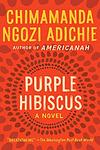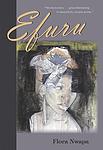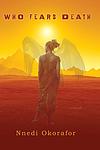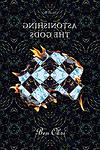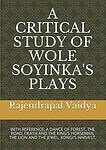The Greatest Nigerian "Fiction" Books Since 1900
Click to learn how this list is calculated.
This list represents a comprehensive and trusted collection of the greatest books. Developed through a specialized algorithm, it brings together 284 'best of' book lists to form a definitive guide to the world's most acclaimed books. For those interested in how these books are chosen, additional details can be found on the rankings page.
Genres
Countries
Date Range
Reading Statistics
Click the button below to see how many of these books you've read!
Download
If you're interested in downloading this list as a CSV file for use in a spreadsheet application, you can easily do so by clicking the button below. Please note that to ensure a manageable file size and faster download, the CSV will include details for only the first 500 books.
Download-
1. Things Fall Apart by Chinua Achebe
This novel explores the life of Okonkwo, a respected warrior in the Umuofia clan of the Igbo tribe in Nigeria during the late 1800s. Okonkwo's world is disrupted by the arrival of European missionaries and the subsequent clash of cultures. The story examines the effects of colonialism on African societies, the clash between tradition and change, and the struggle between individual and society. Despite his efforts to resist the changes, Okonkwo's life, like his society, falls apart.
-
2. Arrow of God by Chinua Achebe
Set in Nigeria during the early 20th century, the story follows Ezeulu, the chief priest of the god Ulu, as he struggles to maintain his position of power in his village and with his own family. As the British colonial government seeks to exert control, Ezeulu finds himself caught between the traditional religious practices of his people and the new political realities. The narrative explores themes of power, tradition, change, and the clash of cultures.
-
3. Half of a Yellow Sun by Chimamanda Ngozi Adichie
The novel is set in Nigeria during the Biafran War, exploring the impact of the conflict on the lives of its characters. The story is told from the perspective of three characters: a young houseboy, a radical university professor, and the professor's wealthy lover. The narrative delves into themes of love, race, and war, offering a vivid depiction of the horrors of conflict and the resilience of the human spirit.
-
4. The Famished Road by Ben Okri
The novel centers around the life of an abiku, a spirit child, who resides in the bustling city of Lagos. Despite numerous attempts to return to the spiritual world, the boy is tethered to the physical realm through the love of his mother. As he navigates through the political unrest and poverty of post-colonial Nigeria, he experiences a series of surreal and mystical encounters, all while wrestling with the pull of the spirit world. The narrative is a blend of reality and the supernatural, providing a unique perspective on the struggles and complexities of human life.
-
5. Americanah by Chimamanda Ngozi Adichie
The novel follows a young Nigerian woman who emigrates to the United States for a university education. While there, she experiences racism and begins blogging about her experiences as an African woman in America. Meanwhile, her high school sweetheart faces his own struggles in England and Nigeria. The story is a powerful exploration of race, immigration, and the complex nature of identity, love, and belonging.
-
6. The Palm Wine Drinkard And His Dead Palm Wine Tapster In The Dead's Town by Amos Tutuola
This novel follows the surreal and fantastical journey of an African man with an insatiable thirst for palm wine, who, after the death of his skilled tapster, embarks on a quest to the land of the dead in hopes of bringing him back to the world of the living. Along the way, he encounters a myriad of bizarre and supernatural obstacles, including ghosts, witches, and other mythical creatures, each presenting their own challenges and moral lessons. The narrative, rich with the oral tradition of Nigerian folklore and written in a distinctive pidgin English, weaves a tale that explores themes of desire, loss, and the intersection of the living and the spiritual realms.
-
7. Second-class Citizen by Buchi Emecheta
"Second-Class Citizen" is a poignant narrative about a young Nigerian woman, Adah, who dreams of getting an education and moving to the United Kingdom. Despite cultural and societal obstacles, Adah manages to achieve her dream but is met with more hardship as she faces racial discrimination, an abusive marriage, and the struggle of raising five children in a foreign land. Through her resilience, she continues to strive for a better life, depicting the struggles of immigrants and the strength of women.
-
8. The Palm-Wine Drinkard by Amos Tutola
This novel follows the story of a man from Nigeria who is addicted to palm wine. After his tapster (the man who taps palm trees to make his wine) dies, he embarks on a journey into the spirit world to find him. Along the way, he encounters a host of supernatural beings and experiences a series of bizarre and thrilling adventures. The book is a unique blend of Yoruba folktales, surrealism, and fantasy.
-
9. Idu by Flora Nwapa
This novel explores the life of Idu, a devoted wife whose existence becomes deeply intertwined with that of her husband, Amadi, who is the love of her life. Set against the backdrop of traditional Igbo society in Nigeria, the story delves into themes of love, loss, and the societal expectations placed upon women. When tragedy strikes and Idu is faced with Amadi's untimely death, her world is shattered, leading her to challenge the conventions and expectations of widowhood. Her profound connection to her husband transcends the physical realm, showcasing the depth of her love and commitment. Through Idu's journey, the narrative presents a poignant exploration of the roles of women, the significance of tradition, and the power of love to transcend the boundaries of life and death.
-
10. Purple Hibiscus by Chimamanda Ngozi Adichie
"Purple Hibiscus" follows the story of a 15-year-old Nigerian girl, Kambili, and her older brother Jaja, who live a privileged life in Enugu. However, their father is a religious fanatic and a domestic tyrant. The siblings are sent to their Aunty Ifeoma's home, a university professor, who provides them a taste of freedom and shows them a different way of life outside their father's oppressive rule. The novel explores themes of colonialism, religious fanaticism, and the post-colonial political situation in Nigeria.
-
11. Death And The King's Horsemen by Wole Soyinka
"Death And The King's Horsemen" is a powerful play set in Nigeria during the colonial era. It explores the clash between traditional African beliefs and the influence of Western culture. The story follows the tragic consequences that unfold when a British colonial officer tries to prevent the ritual suicide of the king's horseman, who is duty-bound to accompany his deceased king to the afterlife. The play delves into themes of cultural identity, the clash of civilizations, and the consequences of interfering with sacred traditions.
-
12. Children Of Blood And Bone by Tomi Adeyemi
In a world where magic has been suppressed and the maji people have been oppressed, Zélie, a young maji girl, embarks on a dangerous quest to restore magic and bring justice to her people. Alongside her brother and a rogue princess, Zélie must confront her own powers and face formidable enemies, navigating a treacherous landscape of betrayal and sacrifice. As they race against time, Zélie discovers that she may hold the key to not only saving her people, but also to changing the destiny of their entire nation.
-
13. An Image Of Africa by Chinua Achebe
"An Image of Africa" is a critical essay that explores the portrayal of Africa and Africans in Western literature, focusing particularly on Joseph Conrad's "Heart of Darkness." The author argues that Conrad, despite being celebrated as a paragon of modernist literature, presents Africa as an antithesis to Europe and civilization, and Africans as culturally and humanly inferior. This work challenges the implicit racism in treating Africa as merely a backdrop for the breakdown of Europeans, urging a reevaluation of how African people and their cultures are depicted in literature and beyond.
-
14. Efuru by Flora Nwapa
The novel is a poignant exploration of the life of a strong and independent woman in a traditional Igbo community in Nigeria. The protagonist, after whom the book is named, is admired for her beauty, intelligence, and wealth, but she faces personal tragedies and societal pressures. Despite her successes in business and her contributions to her community, she struggles with the expectations placed on her as a woman, particularly with respect to marriage and childbearing. The narrative delves into themes of feminism, tradition, and the role of women in a changing society, as the protagonist navigates her relationships and seeks fulfillment in a culture that often values women primarily through their husbands and children.
-
15. The Bride Price by Buchi Emecheta
"The Bride Price" is a novel that explores the life of a young Nigerian girl who, despite her father's disapproval, dreams of furthering her education. After her father's death, she is forced into an arranged marriage due to cultural traditions, but she defies the system and elopes with her lover. However, the consequences of unpaid bride price haunt her, leading to a tragic ending. The book highlights the clash between traditional African values and modern aspirations, the struggles of women in patriarchal societies, and the impact of colonialism on African cultures.
-
16. My Life In The Bush Of Ghosts by Amos Tutuola
The book is a phantasmagorical narrative that follows the harrowing journey of a young boy who, while fleeing from slave traders, becomes lost in a supernatural realm known as the Bush of Ghosts. This mystical forest is inhabited by a myriad of spirits and creatures drawn from Yoruba folklore. As the boy navigates through this eerie landscape, he encounters a series of ghostly domains, each ruled by its own peculiar entities. Throughout his surreal odyssey, which spans several years, he is subjected to bizarre and often terrifying experiences, all the while yearning for a return to his human family and the normal world. The story is a blend of traditional African folklore, myth, and the author's own rich imagination, offering a vivid exploration of the themes of survival, bravery, and the clash between the natural and supernatural worlds.
-
17. Ogboju Ode Ninu Igbo Irunmale by Daniel O. Fagunwa
"Ogboju Ode Ninu Igbo Irunmale" is a captivating Nigerian novel that follows the thrilling adventures of a courageous hunter named Akara-ogun as he embarks on a dangerous quest to rescue his abducted wife from the clutches of supernatural beings. Set in the mythical world of Yoruba folklore, the story takes readers on a mesmerizing journey filled with magical encounters, treacherous obstacles, and profound spiritual lessons, ultimately showcasing the indomitable spirit of human resilience and determination.
-
18. The Joys Of Motherhood by Buchi Emecheta
"The Joys of Motherhood" is a poignant and powerful novel that explores the life of Nnu Ego, a Nigerian woman who struggles to find fulfillment and happiness in the traditional role of motherhood. Set against the backdrop of colonial Nigeria, the story delves into themes of gender inequality, cultural expectations, and the sacrifices mothers make for their children. Through Nnu Ego's experiences, the author offers a thought-provoking examination of the complexities and contradictions of motherhood in a rapidly changing society.
-
19. The Stillborn by Zaynab Alkali
"The Stillborn" is a poignant narrative that explores the lives of women in a traditional African society, focusing on their struggles, resilience, and the quest for personal identity. The story delves into the complexities of polygamy, cultural expectations, and the impact of modernity on rural communities. Through the experiences of its female protagonists, the novel highlights the challenges faced by women in their pursuit of education, autonomy, and fulfillment in a male-dominated environment, ultimately offering a critique of the societal norms that stifle their growth and the transformative power of self-awareness and communal support.
-
20. Who Fears Death by Nnedi Okorafor
This novel is a coming-of-age narrative set in a post-apocalyptic Africa. It follows the journey of a young woman born from a violent act, who is prophesied to bring an end to a brutal regime. As she grows, she discovers her magical abilities and must learn to control them in order to fulfill her destiny. The narrative explores themes of race, gender, and power, while incorporating elements of African mythology and culture.
-
21. Astonishing the Gods by Ben Okri
"Astonishing the Gods" is a mystical exploration of the intersection of the visible and invisible worlds. The protagonist is an invisible man who embarks on a spiritual journey, seeking knowledge and truth. Along his journey, he encounters various gods and mythical beings, each imparting wisdom and insights. The narrative is a blend of poetry, philosophy, and storytelling that challenges the reader's perception of reality, encouraging them to question the nature of existence and the power of imagination.
-
22. Anthills Of The Savannah by Chinua Achebe
This novel explores the political turmoil and corruption in a fictional West African country following a military coup. Through the lives of three childhood friends who have risen to positions of power and influence, the narrative delves into themes of leadership, betrayal, and the quest for democracy in a post-colonial African society. As the country teeters on the brink of chaos, the characters' personal and political dilemmas reflect the broader struggles of a nation grappling with its identity and governance. The story is a poignant commentary on power, the complexities of freedom, and the enduring human spirit amidst societal upheaval.
-
23. Interpreters by Wole Soyinka
"Interpreters" weaves together the stories of a group of young Nigerian intellectuals navigating the complexities of postcolonial life in the 1960s. Through their intertwined lives, the novel explores themes of corruption, societal change, and the search for cultural identity. The characters, who work as interpreters both literally and metaphorically, strive to find their place in a country where the traditional and the modern are in constant tension. The narrative delves into their personal and professional struggles, shedding light on the broader political and social issues facing the newly independent nation.
-
24. Casualties by John Pepper Clark
"Casualties" is a collection of poems that explores the themes of violence, war, and the human cost of conflict, particularly focusing on the Nigerian Civil War and its aftermath. The poet delves into the emotional and physical toll on individuals and society, reflecting on the senselessness of violence and the loss of innocence. Through vivid imagery and poignant verse, the work captures the despair and disillusionment of a nation in turmoil, while also offering a critique of the political and social issues that lead to such conflicts. The poems serve as a powerful reminder of the enduring impact of war on the human spirit.
-
25. A Dance Of The Forest by Wole Soyinka
The book is a complex play that delves into the themes of identity, history, and the cyclical nature of human folly. It is set in an African village where the community is preparing for a festival to honor the return of their dead ancestors. As the living interact with the spirits of the past, the play reveals the characters' personal and political failings, reflecting on the post-colonial experience of African nations. Through a blend of myth, ritual, and satire, the narrative challenges the characters—and by extension, the audience—to confront their own complicity in societal issues, questioning the possibility of true progress and self-understanding.
Reading Statistics
Click the button below to see how many of these books you've read!
Download
If you're interested in downloading this list as a CSV file for use in a spreadsheet application, you can easily do so by clicking the button below. Please note that to ensure a manageable file size and faster download, the CSV will include details for only the first 500 books.
Download








